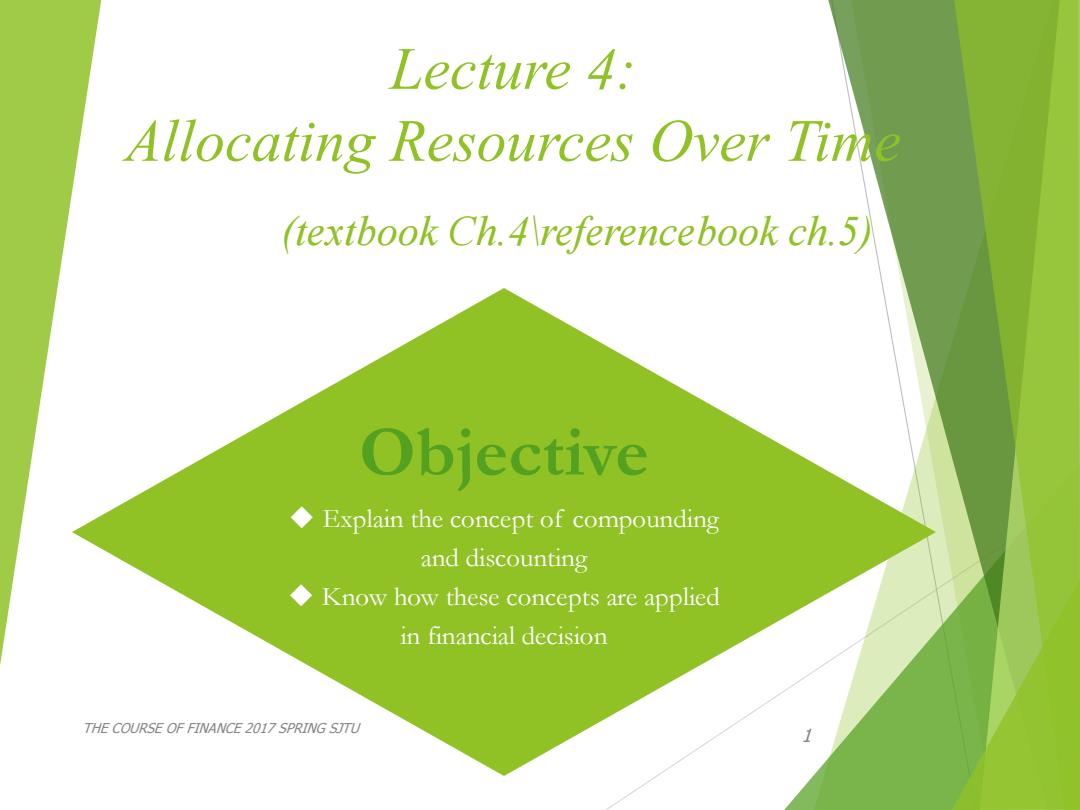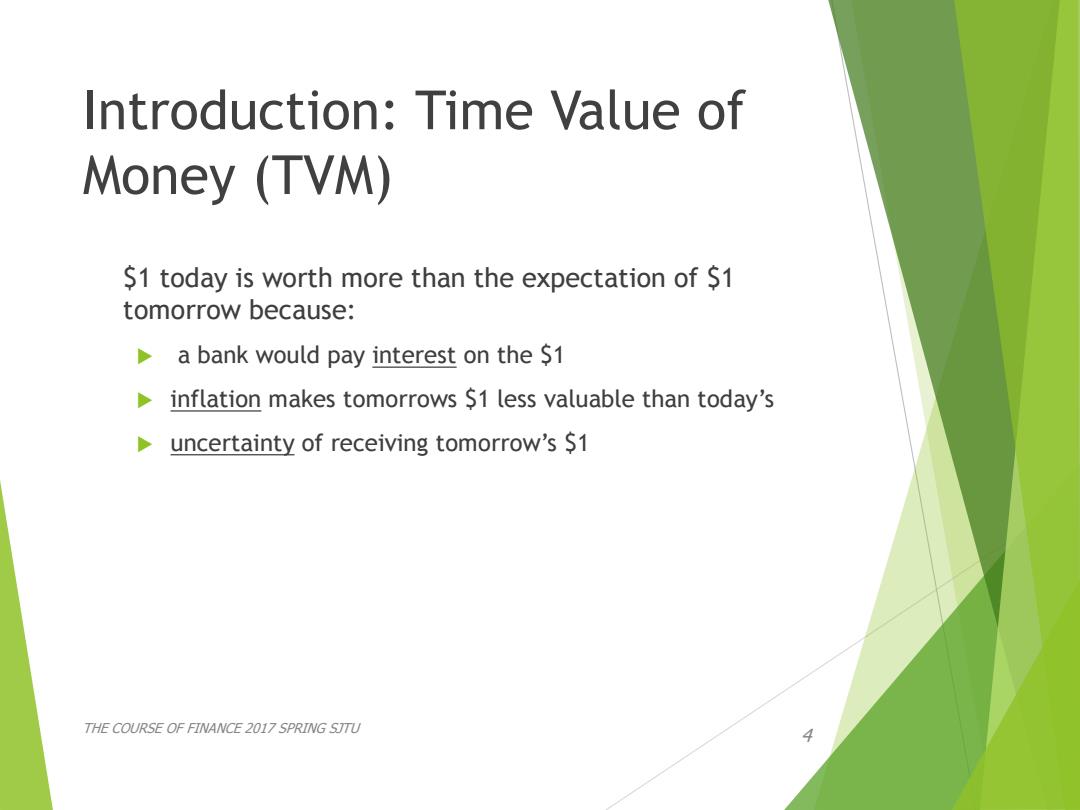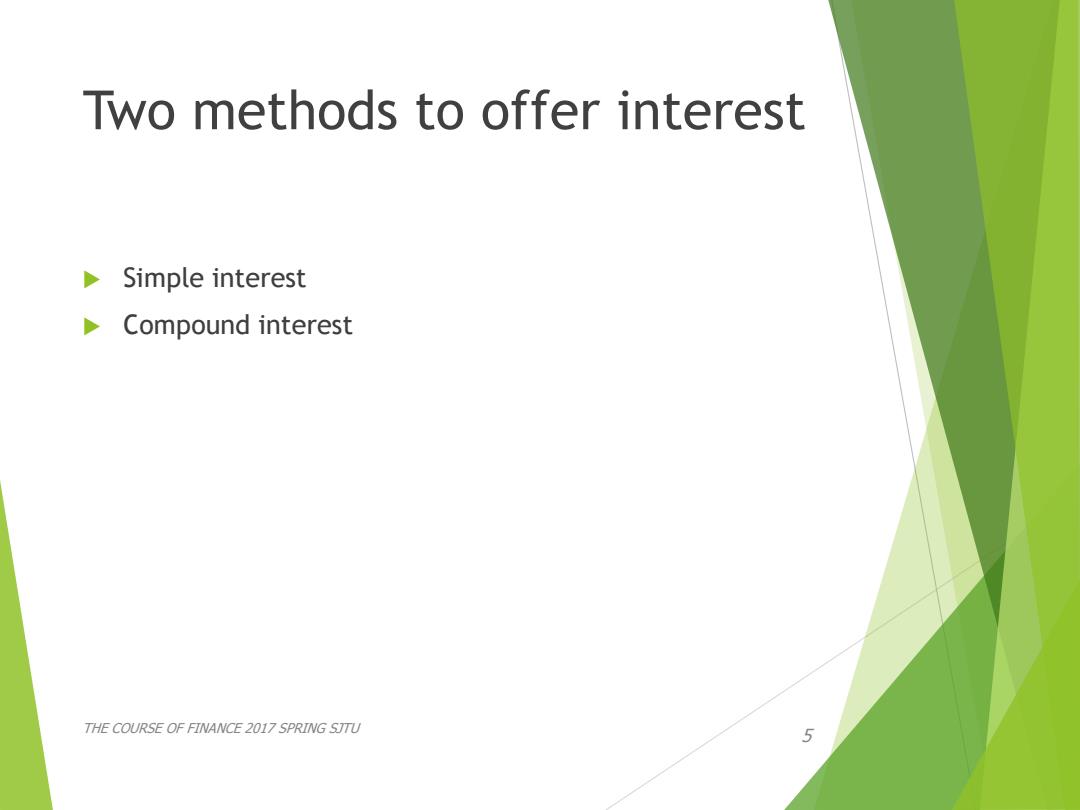
Lecture 4: Allocating Resources Over Time (textbook Ch.4 referencebook ch.5) Objective Explain the concept of compounding and discounting Know how these concepts are applied in financial decision THE COURSE OF FINANCE 2017 SPRING STTU
Lecture 4: Allocating Resources Over Time (textbook Ch.4\referencebook ch.5) THE COURSE OF FINANCE 2017 SPRING SJTU 1 Objective u Explain the concept of compounding and discounting u Know how these concepts are applied in financial decision

Chapter 4 Contents 4.1 compounding 4.6 annuities 4.2 the frequency of 4.7 perpetual annuities compounding 4.8 loan amortization 4.3 present value and 4.9 exchange rates and discounting time value of money 4.4 alternative 4.10 inflation and discounted cash flow discounted cash flow decision rules analysis 4.5 multiple cash flows 4.11 taxes and investment decision THE COURSE OF FINANCE 2017 SPRING STTU
Chapter 4 Contents 4.1 compounding 4.2 the frequency of compounding 4.3 present value and discounting 4.4 alternative discounted cash flow decision rules 4.5 multiple cash flows 4.6 annuities 4.7 perpetual annuities 4.8 loan amortization 4.9 exchange rates and time value of money 4.10 inflation and discounted cash flow analysis 4.11 taxes and investment decision THE COURSE OF FINANCE 2017 SPRING SJTU •2

Selected Contents FV PV Compounding interest;simple interest Discounting and DCF approach Annuity,perpetuity,preferred stock Using Excel functions of FV,PV,PMT,RATE,and NPER to compute time value of money THE COURSE OF FINANCE 2017 SPRING STTU 3
Selected Contents FV, PV Compounding interest; simple interest Discounting and DCF approach Annuity, perpetuity, preferred stock Using Excel functions of FV, PV, PMT, RATE, and NPER to compute time value of money THE COURSE OF FINANCE 2017 SPRING SJTU 3

Introduction:Time Value of Money (TVM) $1 today is worth more than the expectation of $1 tomorrow because: a bank would pay interest on the $1 inflation makes tomorrows s1 less valuable than today's uncertainty of receiving tomorrow's $1 THE COURSE OF FINANCE 2017 SPRING STTU
Introduction: Time Value of Money (TVM) $1 today is worth more than the expectation of $1 tomorrow because: a bank would pay interest on the $1 inflation makes tomorrows $1 less valuable than today’s uncertainty of receiving tomorrow’s $1 THE COURSE OF FINANCE 2017 SPRING SJTU 4

Two methods to offer interest Simple interest Compound interest THE COURSE OF FINANCE 2017 SPRING STTU 5
Two methods to offer interest Simple interest Compound interest THE COURSE OF FINANCE 2017 SPRING SJTU 5